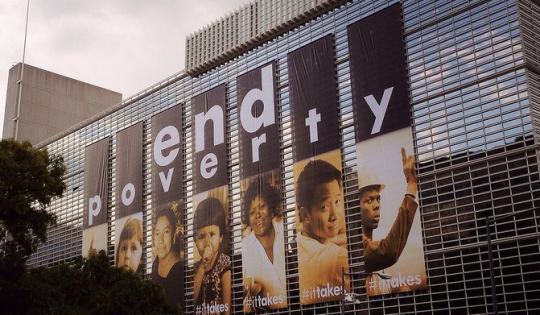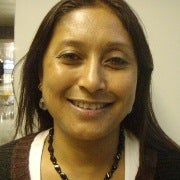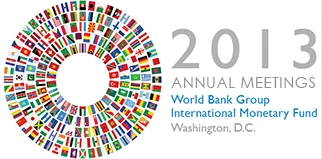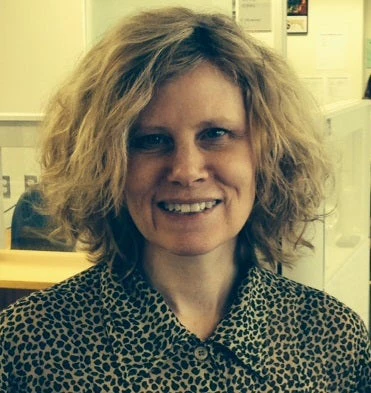
The message draped across the World Bank’s Washington headquarters proclaims a noble goal – End Poverty. But how can the world achieve it? Later this week, finance and development ministers from 188 countries will weigh in on the World Bank Group’s plan to reorganize and modernize in pursuit of the goal. A new strategy paper describes how data, knowledge, financing, and talent will be leveraged to help end extreme poverty by 2030 and to ensure prosperity is more widely shared throughout society. World Bank Group President Jim Yong Kim, Chief Economist Kaushik Basu, and many other speakers will have more to say on these topics at events this week. See a schedule.
Hasina Kharbhih, founder of Impulse Social Enterprises in India, sees the Meetings as a chance for the World Bank and IMF to “bring in our voices.” “We come from different countries, but we have social issues that are so well connected to each other, and when we are sitting around one table we do make a difference because we have one voice.”
 Addressing poverty means helping the disabled, because one in five poor people is disabled, says Edson Ngirabakunzi, executive director of the National Union of Disabled Persons of Uganda. “We cannot work as individuals. We need the support of everybody – government, private sector, civil society, and international banks like the World Bank and IMF. …We have to make a better place for everybody, including disabled persons.”
Addressing poverty means helping the disabled, because one in five poor people is disabled, says Edson Ngirabakunzi, executive director of the National Union of Disabled Persons of Uganda. “We cannot work as individuals. We need the support of everybody – government, private sector, civil society, and international banks like the World Bank and IMF. …We have to make a better place for everybody, including disabled persons.”
Of Note: 3 New Reports Ahead of the Meetings
- East Asia Economic Update, released today, reveals growth is expanding at a slower pace in the region, as China shifts from being an export-oriented economy to one focusing more on domestic demand. Even so, East Asia and the Pacific continue to be the engine driving the global economy, contributing 40% of the world’s GDP growth – more than any other region.
- Africa’s Pulse, also released today, says Africa is increasingly a magnet for investment and tourism, but almost one out of every two Africans lives in extreme poverty. The report suggests that by 2030 most of the world’s poor people will live in Africa.
- The new World Development Report – a major research publication – says proactively managing risks can save lives, avert economic damages, prevent development setbacks, and unleash opportunities.




Join the Conversation